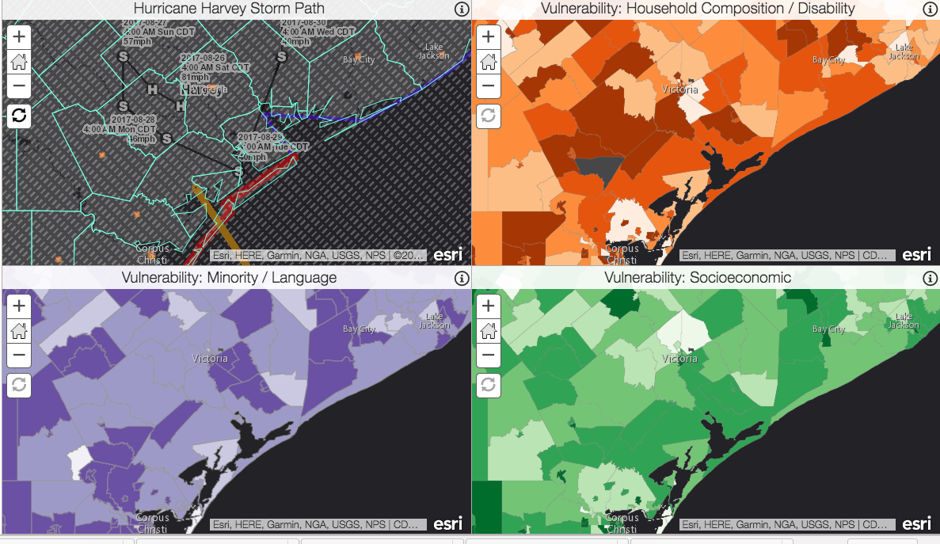|
U.S. Department of Homeland Security
Federal Emergency Management Agency
Private Sector Division/National Business Operations Center
Private Sector Advisory
HOW TO HELP DISASTER SURVIVORS IN TEXAS
August 29, 2017
The compassion and generosity of the
American people is never more evident than during and after a disaster. It is
individuals, non-profits, faith- and community-based organizations, private
sector partners, and governmental agencies working together that will most
effectively and efficiently help survivors cope with the impacts of Tropical
Storm Harvey.
Please
follow a few important guidelines below to ensure your support can be the
most helpful for Tropical Storm Harvey disaster survivors.
TO DONATE TO RELIEF EFFORTS
The
most effective way to support disaster survivors in their recovery is to
donate money and time to trusted, reputable, voluntary or charitable
organizations.
Cash
donations offer voluntary agencies and faith-based organizations the most
flexibility to address urgently developing needs. With cash in hand, these
organizations can obtain needed resources nearer to the disaster location.
This inflow of cash also pumps money back into the local economy and helps
local businesses recover faster.
Please
do not donate unsolicited goods such as used clothing, miscellaneous
household items, medicine, or perishable foodstuffs at this time. When used
personal items are donated, the helping agencies must redirect their staff
away from providing direct services to survivors in order to sort, package,
transport, warehouse, and distribute items that may not meet the needs of
disaster survivors.
Donate
through a trusted organization. At the national level, many voluntary-,
faith- and community-based organizations are active in disasters, and are
trusted ways to donate to disaster survivors. Individuals, corporations, and
volunteers, can learn more about how to help on the National Voluntary Organizations Active in Disaster (NVOAD)
website.
In
addition to the national members, The Texas Voluntary Organizations Active in
Disaster (Texas VOAD) has a list of vetted disaster relief organizations providing
services to survivors. Texas VOAD represents more than three dozen
faith-based, community, nonprofit and non-governmental organizations.
TO PERSONALLY VOLUNTEER IN THE DISASTER AREAS
The
State of Texas is asking volunteers to not self-deploy, as unexpectedly
showing up to any of the communities that have been impacted by Hurricane
Harvey will create an additional burden for first responders.
The
National VOAD has also noted the situation may not be conducive to volunteers
entering the impacted zone and individuals may find themselves turned away by
law enforcement.
To
ensure volunteer safety, as well as the safety of disaster survivors,
volunteers should only go into affected areas with a specific volunteer assignment,
proper safety gear, and valid identification.
At
this time, potential volunteers are asked to register with a voluntary or
charitable organization of their choice, many of which are already in Texas
and supporting survivors on the ground.
The National and Texas VOAD websites are offering links to those who
wish to register to volunteer with community- and faith-based organizations
working in the field.
Most
importantly, please be patient. Although the need is great, and desire to
help strong, it is important to avoid donating material goods or
self-deploying to help until communities are safe and public officials and
disaster relief organizations have had an opportunity to assess the damage
and identify what the specific unmet needs are.
Volunteer
generosity helps impacted communities heal from the tragic consequences of
disasters, but recovery lasts much longer than today. There will be volunteer
needs for many months, and years, after the disaster, so sign up now.
Tropical
Storm Harvey is still dangerous, with the potential to impact additional
areas of Texas and Louisiana. As the situation changes, needs may also change
in these areas. Continue monitoring traditional and social media channels to
learn more.
|

